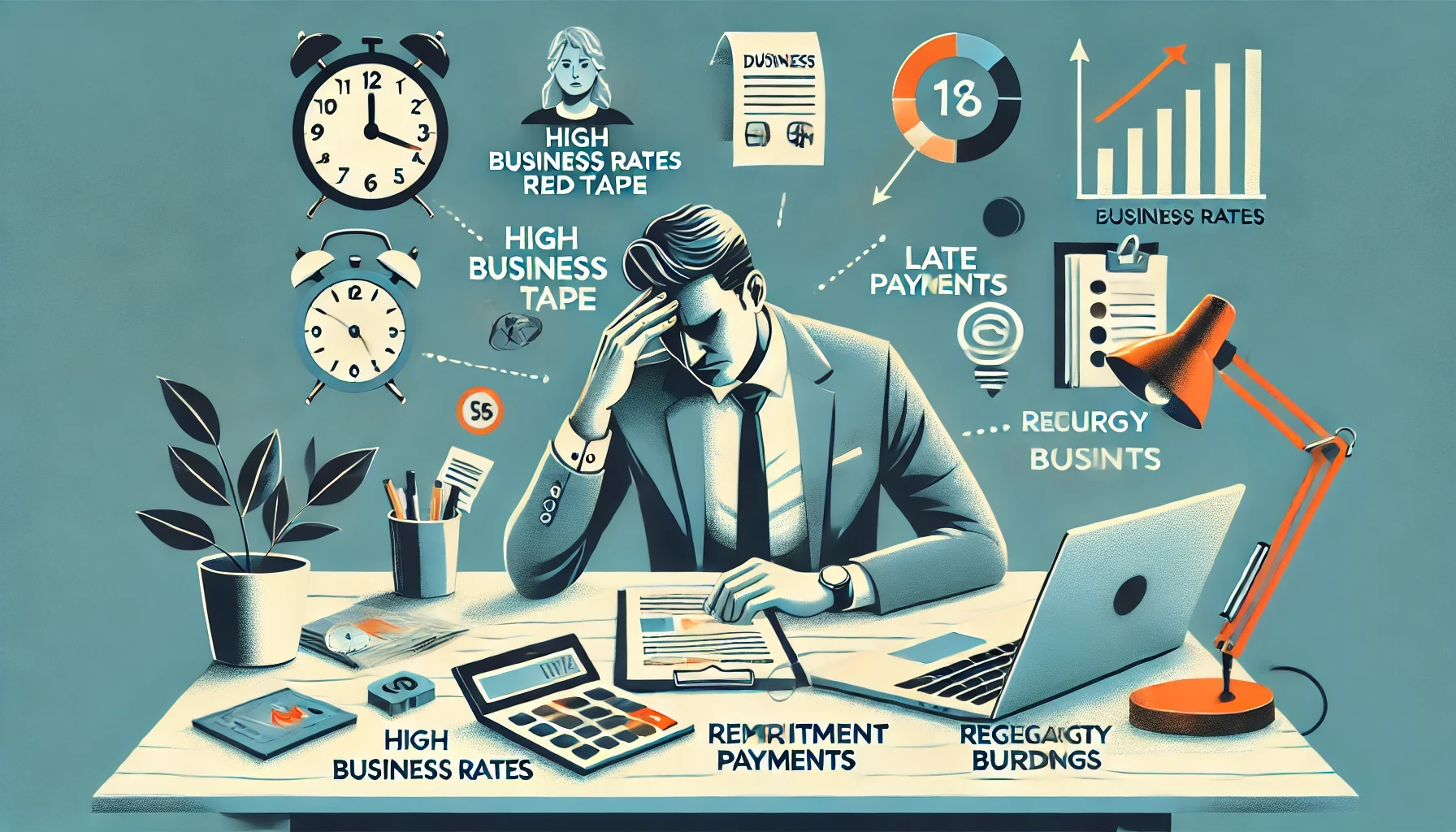Small and medium-sized enterprises (SMEs) are the backbone of the UK economy, driving innovation, job creation, and economic growth.
However, despite their crucial role, SMEs face a range of challenges that make running a business harder than it should be. Below, I (Barrie Jarrett) explore nine of the biggest obstacles SMEs encounter and the one simple solution that could make a difference: tax breaks.
1. High Business Rates
Many SMEs struggle with rising business rates, especially in city areas. The system unfairly penalises businesses that want to expand, making it cost-prohibitive to take on additional office space. For example, if an SME wants to rent three separate rooms, they get charged three times instead of paying a single rate for a larger space.
Solution: Tax relief on business rates for SMEs expanding their office space.
2. Banking Red Tape
Opening a business bank account is a frustrating and time-consuming process, and that’s before even thinking about securing financial support. Ongoing compliance, security checks, and slow decision-making add further delays, making it difficult for SMEs to manage their finances efficiently.
Solution: Government-backed incentives for banks to streamline SME banking processes.
3. R&D Red Tape
Due to past fraud, the UK government has tightened its grip on R&D tax credits, but instead of targeting fraudulent claims, it has made the process excessively complex for genuine businesses. The red tape discourages innovation, and many SMEs end up paying specialists or accountants a large portion of their claim just to navigate the process.
Solution: A simplified, fast-tracked R&D tax credit system for SMEs.
4. Access to Finance
Banks are reluctant to lend, often defaulting to factoring, which sends a negative signal to clients. Instead of encouraging growth, it suggests financial instability, damaging an SME’s credibility.
Solution: Tax incentives for alternative funding options, like growth-focused SME loans.
5. Late Payments
Larger companies routinely delay payments for 60, 90, or even 120 days, while SMEs must pay upfront for services. This creates a massive cash flow problem, putting smaller businesses at risk of financial strain.
Solution: Tax penalties for large companies that delay SME payments beyond agreed terms.
6. Recruitment and Retention
Skilled workers are hard to find, and high salary expectations make hiring even more difficult. SMEs also struggle to compete with big corporations that offer better benefits packages when it comes to UK Employment.
Solution: Tax breaks for SMEs investing in employee training and upskilling.
7. Rising Energy Costs
While not a major issue for all SMEs, businesses that require large premises or energy-intensive operations are hit hard by increasing electricity and gas bills.
Solution: Tax relief on energy costs for SMEs in energy-heavy sectors.
8. Tax Complexity
VAT, corporation tax, national insurance contributions, and other tax obligations create a heavy administrative burden. While accounting software helps, the overall tax load remains a major challenge for SMEs.
Solution: A simplified tax system with lower corporation tax for SMEs.
9. Regulatory Burden
GDPR, employment laws, and compliance rules add layers of administration that consume time and money. SMEs often have to hire specialists to navigate regulations, making compliance another financial strain.
Solution: Tax relief for SMEs on compliance-related costs.
The One Simple Answer: Tax Breaks for SMEs
The government needs to recognise that SMEs are key drivers of economic growth and support them with targeted tax breaks. Whether it’s reducing business rates, simplifying R&D tax credits, or easing compliance costs, strategic tax incentives would fuel entrepreneurship, encourage innovation, and help SMEs scale effectively.
The UK economy thrives when SMEs succeed—so why not make it easier for them to grow?
Q&A on SME Challenges
Q: Why are business rates so high for SMEs?
A: The system is outdated and penalises businesses that need flexible office space. Expanding within a co-working space should not mean paying multiple times.
Q: What makes banking so difficult for SMEs?
A: Opening accounts, securing loans, and ongoing compliance checks take too long, slowing down growth and cash flow management.
Q: Why is R&D tax credit so hard to claim?
A: Due to past fraud, the government has made the process overly complex, punishing genuine SMEs and making them rely on expensive specialists.
Q: How can the government help SMEs with finance?
A: By offering tax breaks on growth-focused loans and penalising large companies that delay payments to SMEs.
Q: What’s the biggest barrier to hiring for SMEs?
A: High wage expectations and competition with big firms that offer better benefits.
Q: How can SMEs manage tax complexity?
A: A simpler tax system with lower corporation tax and tax relief on compliance costs would help significantly.
Q: What’s the single best solution for SMEs?
A: Tax breaks targeted at SME challenges would encourage growth, innovation, and financial stability.






